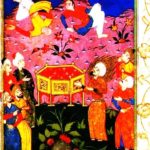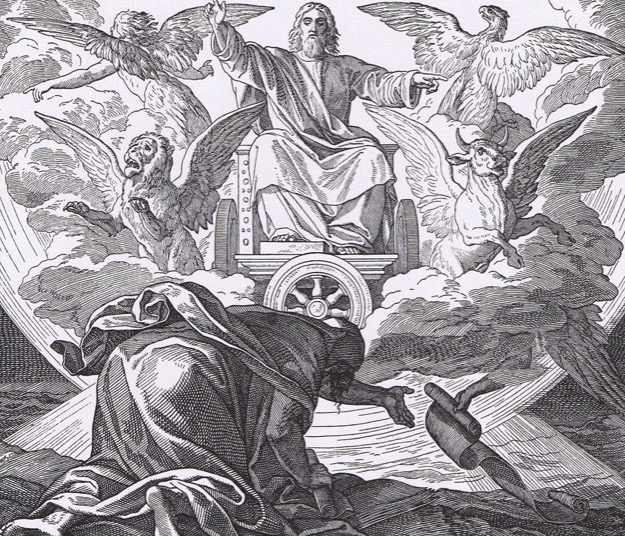- Glorify the name of your Lord, the highest,
- He-Who-Created and laid out,
- And He who determined and guided,
- And He who brings forth pasturage,
- And makes it black stover,
- We will make you call the words so you do not forget.
- Except what Allah wills. Indeed he knows the public [or open] (things) and what he hides.
- And We will ease (the way for) you unto (the state of) ease.
- So remind, if the reminder benefits.
- He who fears will remember [or accept the reminder],
- And he the wretched one will avoid it,
- The one who will burn in the great Fire.
- Then he will not die therein, nor live.
- Certainly, he has succeeded who purifies himself,
- And remembers the name of his Lord and prays.
- Nay! You (all) prefer the present life
- And the Afterlife is better and more lasting.
- Indeed, this surely is in the former Scriptures,
- The Scriptures of Ibrahim (Abraham) and Musa (Moses).
Italics indicate an ayah inserted considerably later.
1. “The highest” is just an adjective, not a name.
2. “Laid out”–this comes from a root meaning to flatten, level, or make equal, so “laid out” is by far the best translation.
3. “Measured” is the root sense, but the best word to capture the range of meanings is “determined,” which spills over into “decreed.”
5. “Stover” is a placeholder for a word meaning the grass when the pasturage is dried up, rather than properly the dried up residue of field crops, but this is the nearest word in English.
6. “Read” and “recite” are the same words in a pre-literate society. Reading was always oral, so if you had a text, it was reading, and if it was from memory, it was reciting. Once again, I translate this as “Call words!” to capture the ambiguity of the meaning.
7. This should probably be passive tense, “is hidden,” but to make the rhyme, it’s active.
8. The extra words are required to make a proper translation in English and are in the Arabic. There is no hint about the “ease” of Muhammad being the “straight path,” however. Allah’s just promising that things will be good for his Messenger.
11. “Wretched” means one without blessings.
16. “Present” is often translated as “of the world,” but it really means the “near life,” the life that is close by–that is, the present life.
17. Literally, the “last life,” “second life,” or “other life.”
Surah Ordering
There is no really amazing reason to put the chronology of revelation in any particularly strict order after this point, but as long as you continue to ignore the surat that are weirdly and inappropriately inserted very early, the traditional order has a rather good flow of thoughts to it, so I continue to follow it here. I won’t say anything more about the that matter until I deviate from it again.
Surah 87, except for a single line about Allah willing Muhammad to forget parts of the Quran, fits very well with the early material, and I’m willing for it to come after 81. Ayah 7 is a typical of single ayat jammed in later–extra long and modifying or clarifying the theology received so far.






